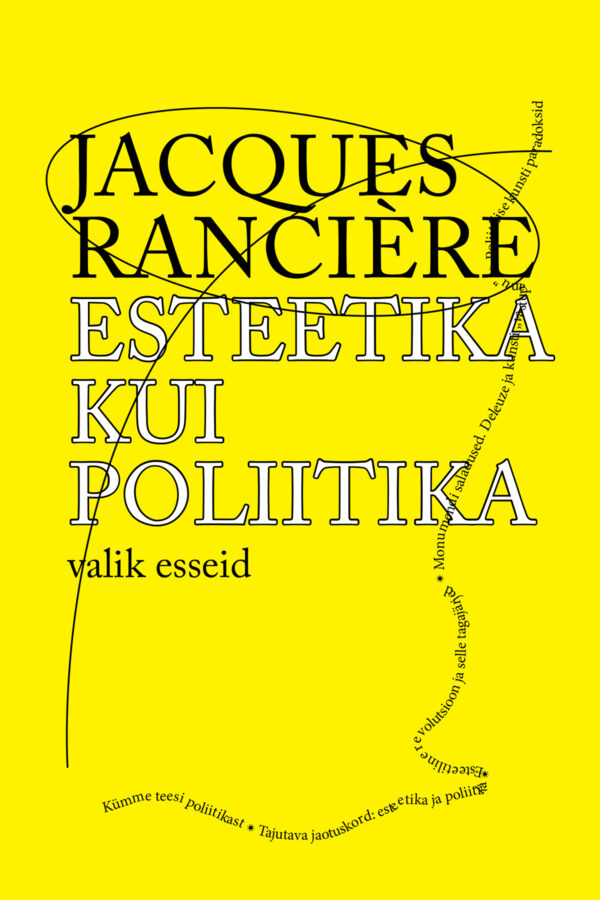
“Esteetika kui poliitika” consists of selected essays by the French philosopher Jacques Rancière, translated into Estonian, that reinterpret aesthetics as a mode of thinking about art and discuss its political contribution. Rancière tries to show how the concept of aesthetics, which originates from the upheavals in the understanding of art at the beginning of the 19th century, and whose influence different 20th century trends (from the Frankfurt School to postmodernism) have repeatedly tried to diminish, has not lost its explanatory power or intellectual significance in the contemporary art situation. For Rancière, the concept of aesthetics does not concern the mere form or narrow reception of an artwork, but the whole sensuous fabric of experience in which works are created and received, and as such art has its own specific political dimension. With the help of wide-ranging examples from romantic literature to avant-garde art and representations of the Holocaust in film, he illustrates his point of view that it is through the aesthetic prism that the inner connection of municipal art with politics spreads, which allows the influence of art to be distinguished among other ways of doing things.
The collection consists of 5 longer essays from 1998-2008:
– “10 theses about politics”;
– “The distribution of the sensible: aesthetics and politics”;
– “Aesthetic revolution and its outcomes”;
– “Secrets of the monument. Deleuze and the “resistance” of art”;
– “Paradoxes of political art”.
In addition, the collection contains the publisher’s foreword, an interview with the author that took place in 2012, and an afterword by Maarja Kangro.
Jacques Rancière (1940) is an emeritus professor at the University of Paris VIII (Vincennes–Saint-Denis).
Compiled and edited by Neeme Lopp
Translated by Anti Saar
Language editor: Tiina Hallik
Designed by Ott Kagovere
213 pages, in Estonian
Estonian Academy of Arts Press, 2017
ISBN 978-9949-594-39-9
